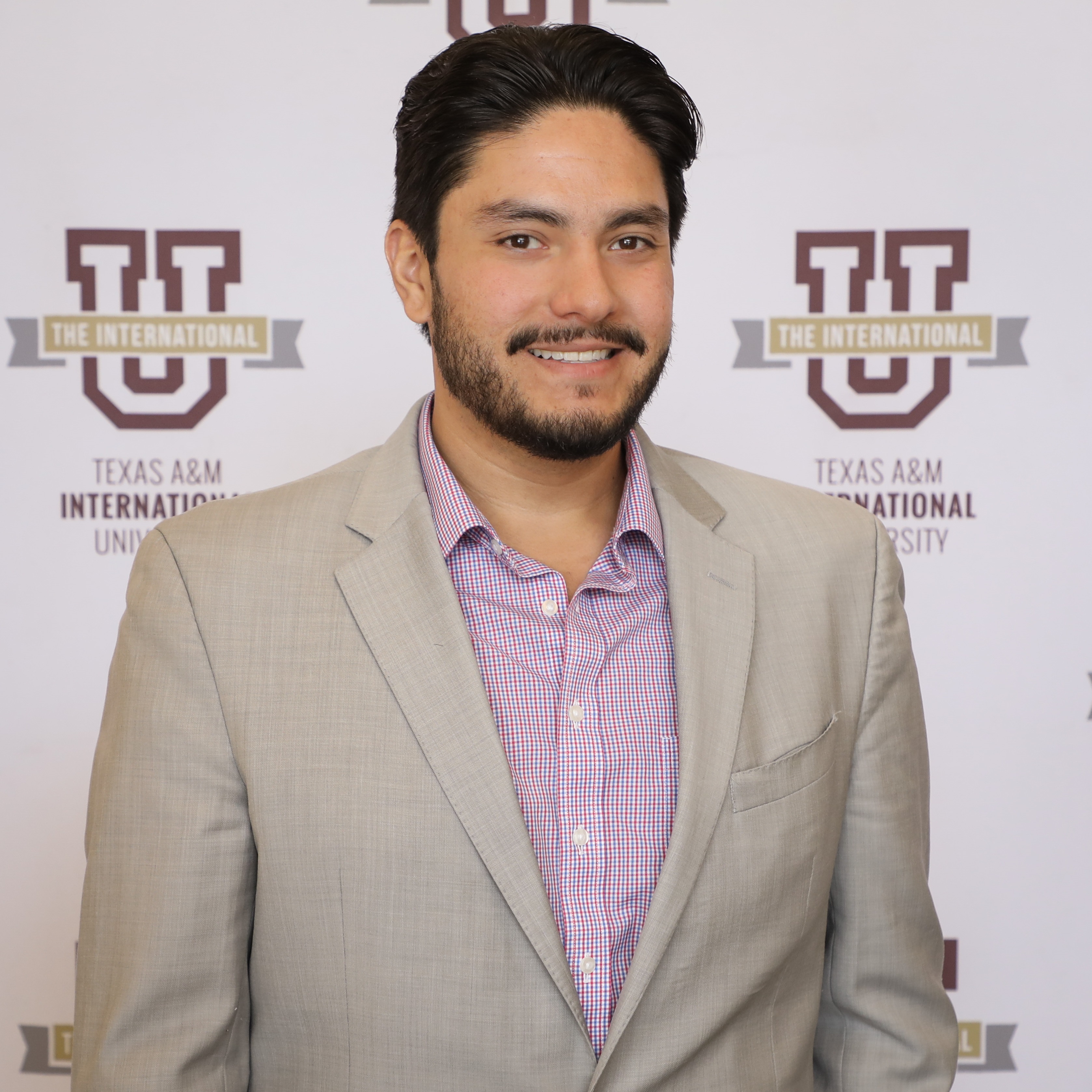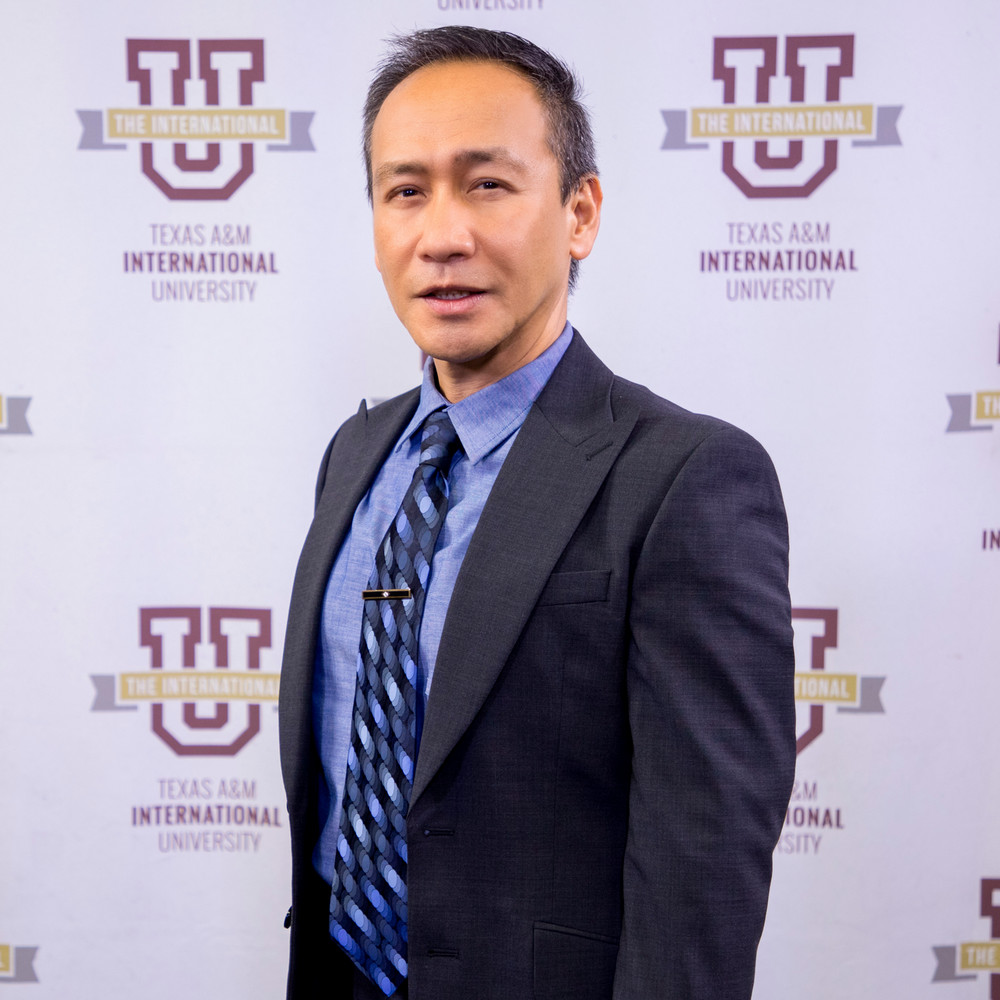TAMIU's Dr. Soto-Vásquez Publishes Research on Spanish Language Election Disinformation in Prestigious Journal

An academic paper co-authored by Texas A&M International University (TAMIU) assistant professor of Communication Dr. Arthur D. Soto-Vásquez and a doctoral degree candidate from American University, Mariana Sánchez Santos, which explores Spanish language election disinformation was published in the prestigious Cultural Studies↔Cultural Methodologies Journal.
The paper, entitled, El Cabal, Vacunas, y Donald Trump: An Analysis of Spanish-Language Disinformation Leading Up to the U.S. Capitol Insurrection, appeared in the Journal's March 2022 edition.
The authors also recently presented their work at the prestigious International Communication Association Conference in Paris, France in May.
For the paper, the authors conducted an analysis of Spanish language disinformation by right-wing media in the United States from a cultural and intersectional perspective. They analyzed the mythological and dramatic narratives in content from a Spanish-language conspiracy website posted between the 2020 election and the U.S. Capitol insurrection.
The narratives are examined through the lens of the deep story, the basis for the theory of knowledge of U.S. conservatism. The authors argue that the deep story and right-wing conspiracy culture are highly flexible and can appeal to certain non-White audiences online. They then question right-wing U.S. Latina/o/x political identity through an analysis of the conspiracy culture exemplified in the disinformation from the website.
The authors found that COVID and vaccine disinformation was a gateway to election falsehoods. They explain that while much of the content came from English language sites like the Epoch Times, they were given context by a Spanish speaking influencer. Ultimately, they argue that right wing disinformation is narratively flexible, even appealing to non-traditional audiences.
The following includes a Q&A with co-author, Dr. Soto-Vásquez on the paper:
You note that right-wing Spanish language disinformation is on the increase, but is under-reported. How would you go about encouraging more coverage and awareness?
There’s an effort by some Spanish language journalists, especially in South Florida, who have noticed this. However, journalists from Spanish television news need to be more active in identifying and dispelling misinformation.
Do you believe that this disinformation is a factor in swings toward Republican candidates, especially in South Texas?
As political races in South Texas become more competitive, they will attract actors to intentionally spread disinformation to advance their own agendas. We have to develop the capacity locally to combat those efforts through local media and education.
You speak of a cultural affinity for Spanish language disinformation. If unchecked, do you see that growing? How would you simply define the deep story?
The deep story is a very flexible narrative that in simplest form, says “you’re working hard and struggling, that is the fault of others such as the government or elites or immigrants.” It eludes that most Americans, Latino or other, struggle to get by because the system is rigged against them. Among Latinos, you have a high much higher belief in the American dream according to Pew. My worry is that when this belief confronts economic reality, a lot of inward and outward anger will result.
What three things should consumers of possible disinformation do to help reduce the likelihood of falling prey to bad actors?
A few things, just because someone says something confidently, does not make it true. Other research we’ve done with TAMIU professors Ariadne González, Nilda García and graduate students shows that the Latino family can also be a powerful place of dispelling disinformation, especially from adult children to parents - so ask what your parents are reading and watching online!
The immigrant experience is often a shared experience among Latinos, yet you note that it can actually be "disinformed" to create resentment. How can this be countered?
Among Latinos in the United States there are very uneven experiences with immigration. One example we note is how during the Cold War, the U.S. government focused on integrating ideological allies from Latin American to combat Soviet influence as citizens. Their experience is much different than the people who have come recently as refugees. It's become somewhat cliché now, but we shouldn’t assume all Latinos have the same experiences in the United States. We miss a lot by doing that.
How do you explain the popularity of Trump with his clear anti-immigrant perspective among Latinos?
As I just said, in addition to different experiences, we also have to finally recognize that immigration isn’t the only issues Latinos care about. There was some great polling on 2020 from the firm Latino Decisions and basically, they found that Latinos cared about the jobs and healthcare.
In addition to election disinformation, you note the very real impact of disinformation on the COVID response. Are the same tools for disinformation in use for this?
We found that COVID disinformation was often a gateway to the harder stuff on election disinformation. People tend to turn to anything that helps explain confusing and uncertain moments, and 2020 was one of those years.
You are building awareness of disinformation for Latino/a communities. What is next? Do you see the threat of deep fakes as real and another for disinformation that should be anticipated and defended against? Is there already traction?
I think I am more interested in how the cultural configuration of U.S. Latinos is changing as their partisan behaviors are changing. I believe that disinformation takes hold once there is already a cultural acceptance of the narrative it supports, so we need local leaders operating at that level.
Can you tell us about the important research opportunity this provides to students and how this could figure prominently in their future and careers?
One thing my colleagues and I have always been grateful for is the support TAMIU has given to us through various grants which enable us to work with students over the summer. They learn how to use the literature they read and develop scholarly arguments. The last three summers we’ve had students from the research bootcamp help us. A lot of times, those programs need students to apply - so my advice I tell everyone is show up and apply.
Dr. Soto-Vásquez, who joined the TAMIU faculty in 2018, earned his Ph.D. in Communication at American University. His MA in media studies was received at The University of Texas at Austin in 2015 and his BA in Political Science at St. Edward's University.
His research area is political communication and digital media studies. He is a member of the National Communication Association and International Communication Association. He has been named a Faculty Fellow this summer at American University, School of Communication and a 2022-2023 Affiliate to the Center for Information, Technology, and Public Life at the University of North Carolina.
TAMIU’s Fall 2022 Registration is now underway. For detailed registration information, visit https://news.tamiu.edu/fall22.
Classes begin Monday, Aug. 22, 2022. Late registration ends Friday, Aug. 26.
University news and information can also be found online at tamiu.edu and on TAMIU’s social channels on Facebook, Instagram, LinkedIn, Twitter and YouTube.

